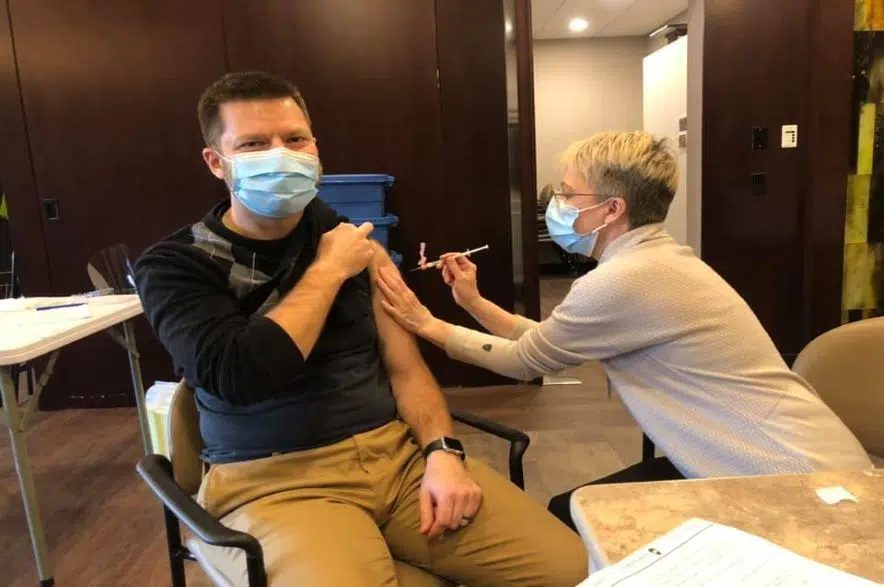It’s not just emergency rooms and hospitals that have seen a surge of respiratory patients needing urgent care over the past few months.
At least one Saskatoon medical clinic is seeing unprecedented demand as well.
Dr. Adam Ogieglo, a family physician at Lakeside Medical Clinic, said that over the last few months his clinic has seen an increase in respiratory illnesses in both children and adults, and the surge is coming earlier in the year than usual. As a result, wait times are getting longer.
“It has exponentially increased in the last few weeks. Two, three weeks ago … we were seeing standard wait times of three or four hours, which is unheard of,” he said. “The volumes are huge. They’ve gotten even worse.”
One week ago, Ogieglo said, the clinic had to cut off new patient registrations five to six hours before closing time. Last weekend, it was seven hours before closing time.
Ogieglo said he’s seeing a lot of patients with Influenza A, especially children, and there are some patients with COVID and other respiratory infections as well.
He said he’s noticed many patients who aren’t vaccinated against the flu this year.
“I checked to see if the patients I swabbed last week had their influenza vaccination, and exactly zero of them did,” he said.
As for the primary factors behind the tidal wave of illness he’s seeing, the doctor said it’s complicated.
“I think part of it is the lack of exposure to some of these germs over the last couple of years,” he explained.
“We’re very grateful people were wearing masks and staying home when they were sick through the pandemic. That has saved many, many lives throughout the worst of COVID.”
The side effect of that, however, was very little flu virus circulating and very little exposure to it over the last year or so.
“We’ve gotten away from some of the habits,” Ogieglo said. “Very few people are wearing masks out in public, although I certainly endorse doing that. Not everyone is staying home when they are sick now, and these germs are just circulating at higher levels.
“So we have lots of kids that are getting exposed to these germs for the first time. These are serious illnesses for some kids. There’s going to be some of them needing assistance and needing to be admitted to hospital, unfortunately.”
He said it’s not difficult to mitigate respiratory illnesses, and noted that it’s been done for the last two years with relatively simple measures.
“We know exactly what works; wearing a mask when indoors with other people, staying home when you’re sick,” he said. “It isn’t complicated, and doesn’t have to be fancy.”
While it’s not possible to eliminate the infections altogether, because respiratory illnesses are so prevalent right now, Ogieglo said we don’t have to “throw kids into the deep end of the pool right now.”
Rather, he explained, a gradual “re-entry into the shallow end of the pool where there’s less of these infections going around,” and plenty of “lifeguards” in the form of health-care workers around to help them, would be easier on everyone.
“I think that would be a more ideal way to kind of balance the return to normalcy,” he said.
What’s happening now has seen children’s hospitals in some parts of the country, like Ontario, become totally overwhelmed with an influx of young patients.
“I fear we’re just a few weeks behind that in Saskatchewan,” Ogieglo cautioned.
As a doctor, he said he’s stressed out, which is never a good situation to be working in. Adding to the stress is the fact he’s seeing patients who have had to wait so many hours for care. Most patients have been gracious and understanding, he noted, something for which he’s grateful.
“I worry more about the parents and kids that aren’t able to access care … and the other people that are needing our help for other problems,” he said. “They might shy away from seeing us because of those long waits.”
So what’s Ogieglo’s “prescription” for easing the deluge of respiratory illness in Saskatchewan?
“Please wear a mask when indoors,” he said. “Second, get your flu shot, and keep your COVID vaccinations up to date. The other is to stay home if you’re feeling sick.”







